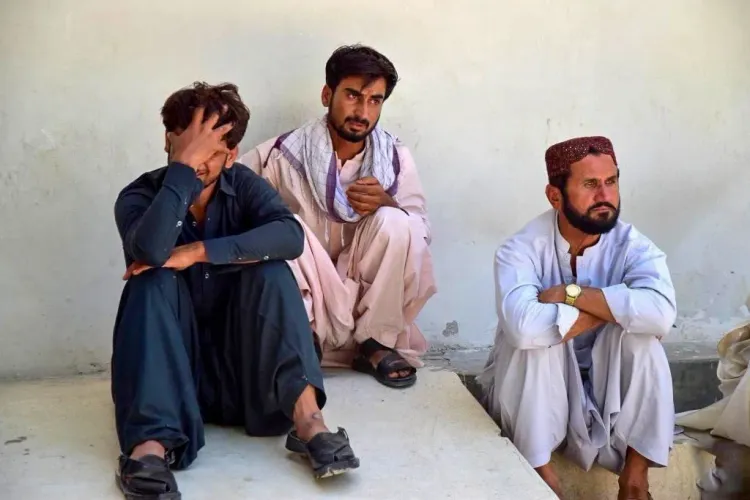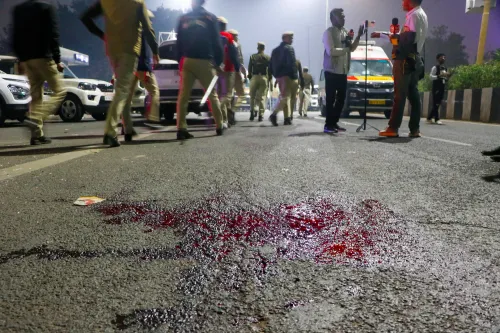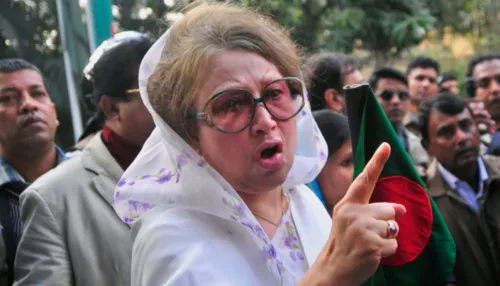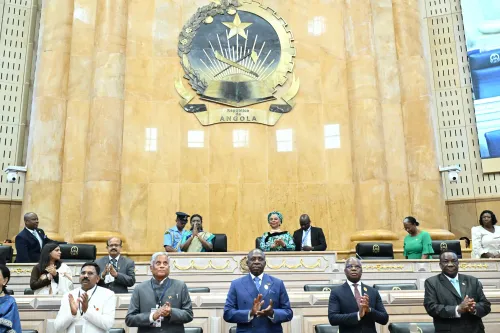What does the June report reveal about enforced disappearances and extrajudicial killings in Balochistan?

Synopsis
Key Takeaways
- 84 cases of enforced disappearances reported in June.
- 33 incidents of extrajudicial killings documented.
- The districts of Kech and Mastung had the highest number of disappearances.
- Many victims were released after suffering torture.
- Ongoing abductions of Baloch youth raise concerns.
Quetta, July 27 (NationPress) Paank, the Human Rights Department of the Baloch National Movement, reported on Sunday that in June, Balochistan, Pakistan, experienced 84 instances of enforced disappearances and 33 incidents of extrajudicial killings.
In its latest report titled ‘Balochistan Human Rights Report – June 2025’, Paank has meticulously documented cases of enforced disappearances and extrajudicial killings.
According to the findings, the report is grounded in verified accounts from June 2025 and highlights the deteriorating human rights conditions in Balochistan.
The report indicates that numerous cases of enforced disappearances and illegal detentions were recorded across 14 districts of Balochistan in June, including incidents originating from Karachi and Islamabad.
The districts of Kech and Mastung reported the highest instances of disappearances, with a total of 84 individuals forcibly taken during June, as per the report. Many were held without any legal process, with 32 individuals later released after enduring both mental and physical torture while in custody.
Paank has accused Pakistani forces of conducting extrajudicial killings relentlessly. The report states that the Pakistani military is allegedly detaining and killing individuals without any legal justification, often without known motives. In June, 33 cases of extrajudicial killings were reported in Balochistan, highlighting a troubling pattern of unchecked violence by state authorities.
"The continuous use of enforced disappearances followed by extrajudicial killings has become a defining characteristic of state policy in Balochistan. Victims are commonly taken without any legal recourse and later found deceased, often showing signs of torture. The silence from institutions and the absence of judicial oversight have allowed this crisis to escalate. Families face double trauma—first from the disappearance, then from discovering mutilated bodies, frequently discarded in remote locations. This ongoing situation represents a severe human rights emergency that requires immediate international attention," stated the Paank report.
The report also pointed out the increasing abductions of Baloch youth from Karachi and Islamabad, raising alarms among families and human rights advocates. It noted that the racial profiling case involving Baloch students remains unresolved in the Islamabad High Court, despite persistent calls for action.
The report indicated that Baloch activists Mahrang Baloch, Gulzadi Baloch, Beebow Baloch, Sibghat Ullah Baloch, and Beeberg Baloch remain detained despite appearing in court.
Paank expressed concern that these activists were handed over to police on a 10-day physical remand under newly fabricated terrorism charges instead of being released, describing this as a clear tactic by authorities to suppress peaceful activists and leaders, keeping them imprisoned without a fair trial or substantiated evidence.









